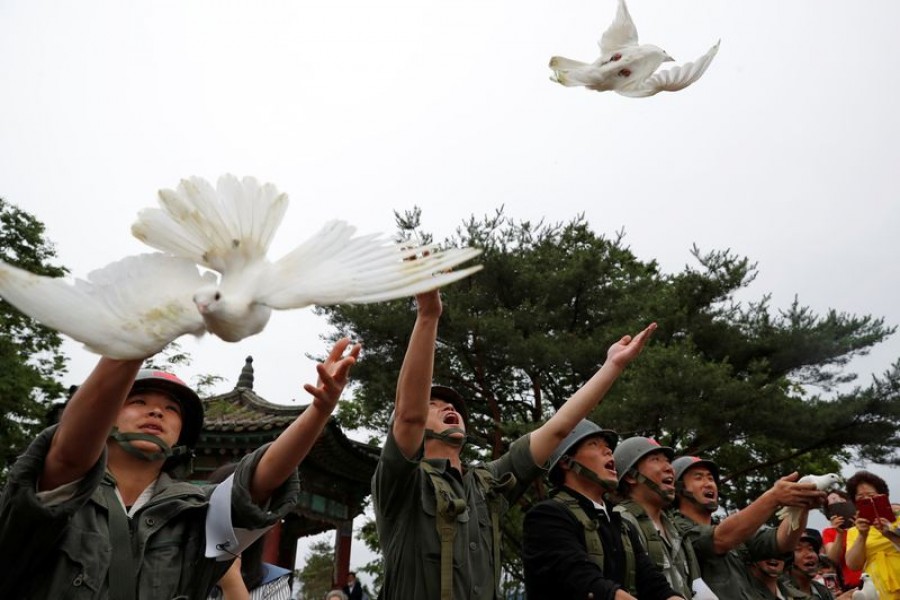Seventy years after the Korean War began, prospects for a peace treaty to officially end the conflict appear as distant as ever, as the two Koreas held low-key commemorations on Thursday amid heightened tension on the peninsula.
The 1950-1953 Korean War ended in an armistice rather than a peace treaty, leaving US-led UN forces technically still at war with North Korea.
South Korean leaders in 1953 opposed the idea of a truce that left the peninsula divided and were not signatories to the armistice, Reuters reported.
South Korean veterans of the war were due gather to commemorate the anniversary, including at one event where US President Donald Trump and other international leaders were expected to deliver video messages.
North Korea’s ruling party newspaper ran a front-page commentary calling for people to follow in the footsteps of those who fought to defend the nation.
“Several decades have passed, but the danger of war has never left this soil,” the newspaper said, blaming “hostile forces” for seeking to crush North Korea.
Two years ago, a flurry of diplomacy and summits between North Korean leader Kim Jong Un and the presidents of the United States, South Korea, and China raised hopes that even if the North’s nuclear arsenal was undiminished, the parties might agree to officially end the technical state of war.
Those hopes have been dashed, however, with North Korea accusing the United States and South Korea of clinging to hostile policies, and Washington pressing Pyongyang to abandon its growing arsenal of nuclear weapons and long-range missiles.
A series of follow-up meetings and working-level talks failed to close the gap between the two old enemies, and North Korea has taken an increasingly confrontational tone, resuming short-range missile launches, blowing up an inter-Korean liaison office and severing communication hotlines with South Korea.
On Wednesday, North Korea said it had decided to suspend plans for unspecified military action against South Korea, but warned it to “think and behave wisely”.
Historians have estimated the war may have caused as many as 1 million military deaths and killed several million civilians. Thousands of families were divided with little contact as the heavily fortified Demilitarised Zone (DMZ) cut the peninsula in two.
“The unresolved state of the Korean War has had devastating consequences for Koreans, from the separation of thousands of families to the extreme militarization of the Korean Peninsula,” said Christine Ahn, international coordinator for WomenCrossDMZ, a group that advocates for peace in Korea.
Despite misgivings from many in the United States, South Korean officials are pushing more forcefully for an end to the armistice arrangement, saying that it appreciates the role of the United Nations Command, South Korea’s alliance with the United States should evolve with the times.
“It is time for Korea to take centre stage in maintaining its own peace and security, by ending the current state of armistice and establishing a permanent peace regime on the Korean peninsula,” South Korea’s Vice Foreign Minister Cho Sei-young said on Wednesday.


